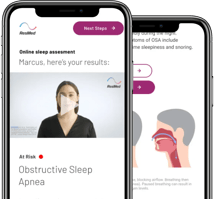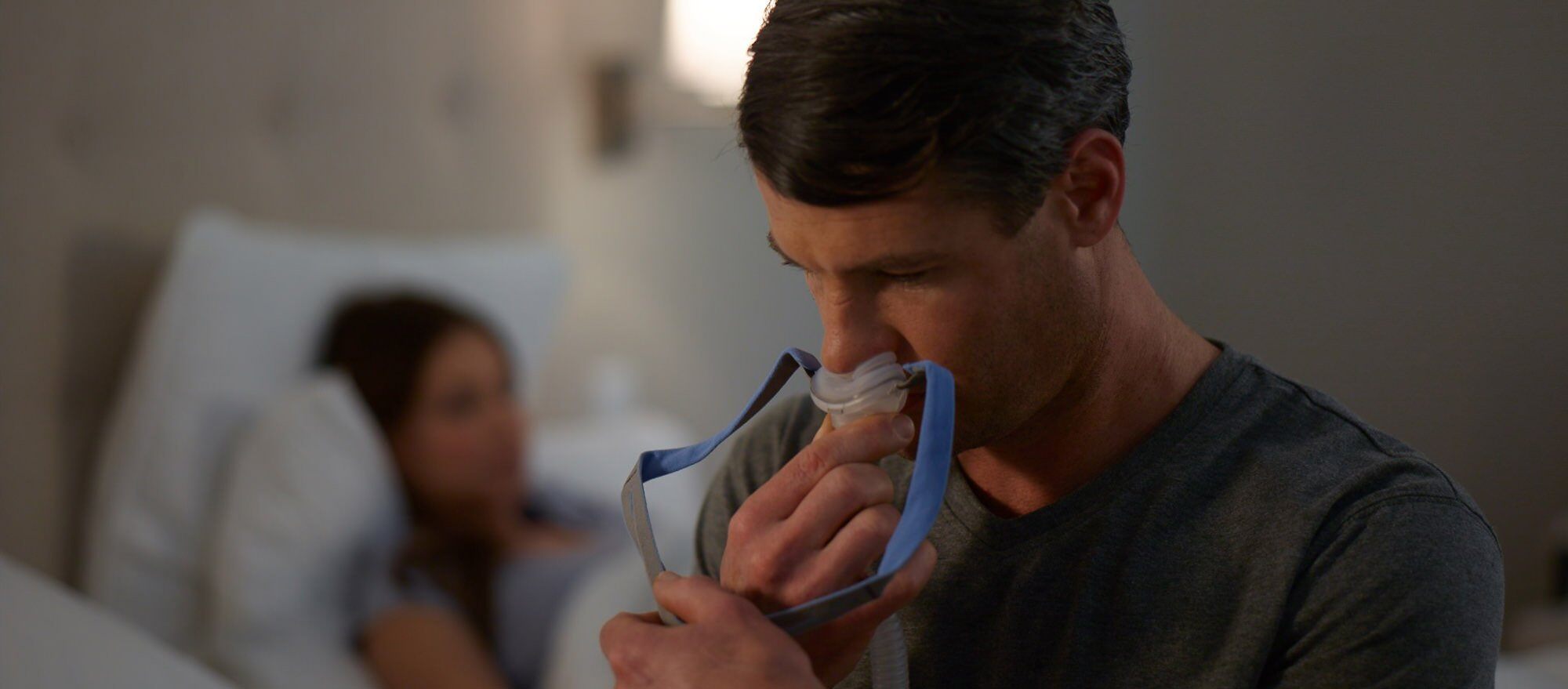If you have a CPAP (Continuous Positive Airway Pressure) machine as a part of your sleep apnea therapy, it’s important that you are taking regular care of it to ensure that it is working correctly and to maximise its efficacy during your treatment. This includes knowing when to replace your mask.
It is typically recommended that masks be replaced every 6 to 12 months, and headgear just as often, however here are the five signs to tell when your CPAP mask needs replacing:
1) When You Notice Different Results
If you begin to find that the results of your nightly therapy are starting to drop, and you are not feeling as refreshed after sleep as you were previously, it may be time to consider replacing your mask.
2) The Quality Of The Seal
The mask’s seal, which covers your nose and mouth, is originally clear and strong, however with regular use this seal becomes discoloured, weak and loses the ability to create a hold around your face. This is because the natural oils on your skin build up on its surface, which can reduce the effectiveness of both your mask and consequently, your therapy. A new mask will help ensure the seal is working correctly.
3) Having a Dry Mouth Upon Waking
Waking up with a dry mouth could be a sign that your current mask might need to be replaced! This can occur when air leaks cause a fluctuation in the mask’s air pressure, and your mouth opens to compensate, thus drying it out throughout the night.
Time to upgrade your CPAP mask?

If you are looking for a more comfortable, better sealing CPAP therapy mask, you should check out the new ResMed AirTouch F20. Designed to be light, unobtrusive and easy to use, it is the first ResMed mask to use UltraSoft™ memory foam cushion technology for the perfect blend of comfort and performance.
The AirTouch F20 delivers you unprecedented comfort even at high pressures, by featuring a breathable vented seal and quick release mechanism.
4) Becoming Uncomfortable To Wear
When a mask begins to weaken, it becomes loose, which can result in users tightening it more with each use. As the mask no longer holds a strong seal, the mask is overtightened and the pressure may leave temporary grooves or irritation on your skin.
5) Elastic Is Torn, Worn Out or Lost Shape
The elastic fabric on the mask wears down overtime due to sweating, movement, tightening and cleaning. If the mask is becoming very thin, is torn or has lost its shape, it may be time for a new mask.
Your CPAP Machine is designed to help treat your sleep apnea, so that you can get a better night’s sleep. However, if you continue to use an old mask that needs replacing, it may compromise the results of your therapy, or lead to discomfort or hygiene issues.
If you start noticing a few of the above signs, consider replacing your mask to ensure you get the most out of your sleep apnea therapy.
.webp?width=1158&height=143&name=Combined%20logo%20-%20Ecom%20Main%20300x200%20(1).webp)






